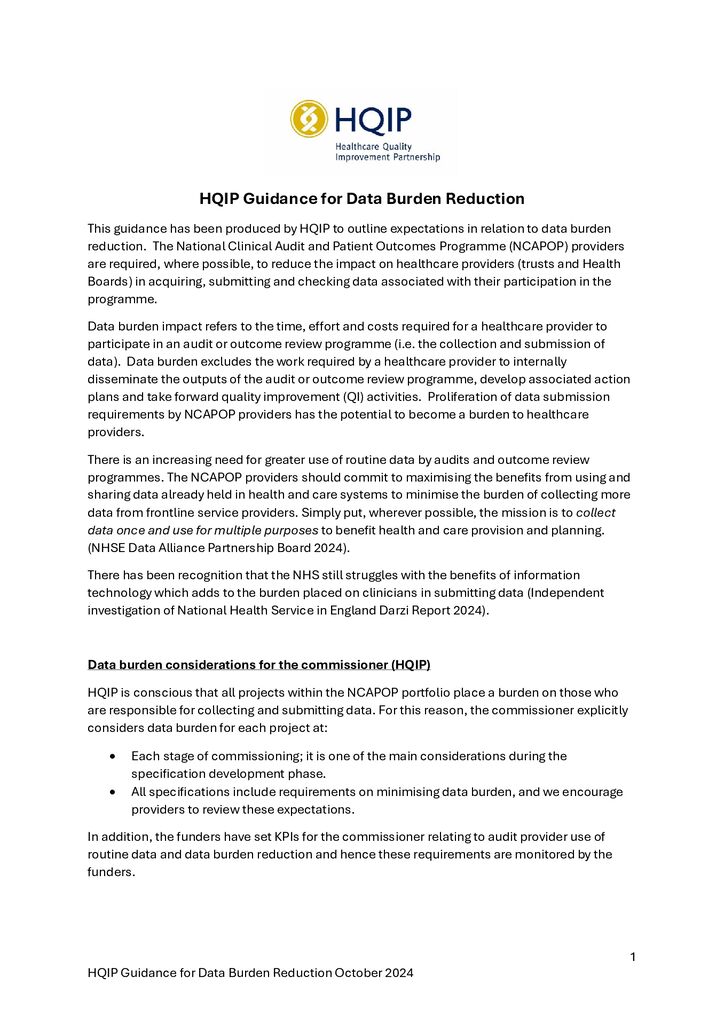Reducing data burden
Data burden impact refers to the time, effort and costs required for a healthcare provider to participate in an audit or outcome review programme (i.e. the collection and submission of data). Proliferation of data input submission requirements by audit and outcome review providers has the potential to become a burden to healthcare providers. We also acknowledge the work required by a healthcare provider to internally disseminate the outputs of the audit or outcome review programme, develop associated action plans and take forward quality improvement (QI) activities.
“The mission is to collect data once and use for multiple purposes to benefit health and care provision and planning”
There is an increasing need for greater use of routine data by audits and outcome review programmes, and National Clinical Audit and Patient Outcomes Programme (NCAPOP) providers should commit to maximising the benefits from using and sharing data already held in health and care systems to minimise the burden of collecting more data from frontline service providers. Simply put, wherever possible, the mission is to collect data once and use for multiple purposes to benefit health and care provision and planning (NHSE Data Alliance Partnership Board 2024).
NHS England has incorporated criteria relating to the use of routine data and reducing data burden as inclusion criteria for the NHSE Quality Accounts List 2025-26.
Download further information
- HQIP recognises the importance of reducing the burden on healthcare provider organisations participating in the National Clinical Audit and Patient Outcomes Programme (NCAPOP) and has issued a statement about this, which can be accessed using the relevant button below.
- You can also download HQIP’s specific guidance for NCAPOP providers below.


